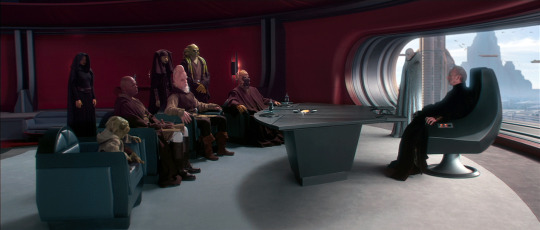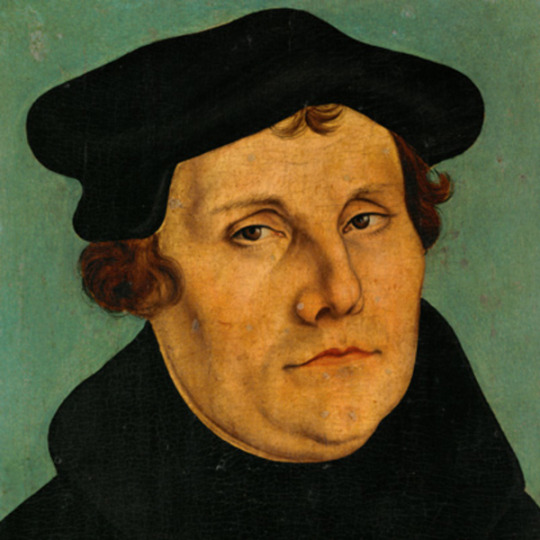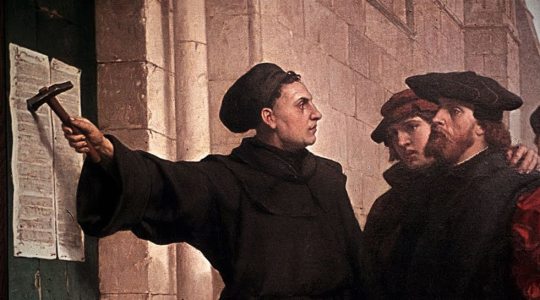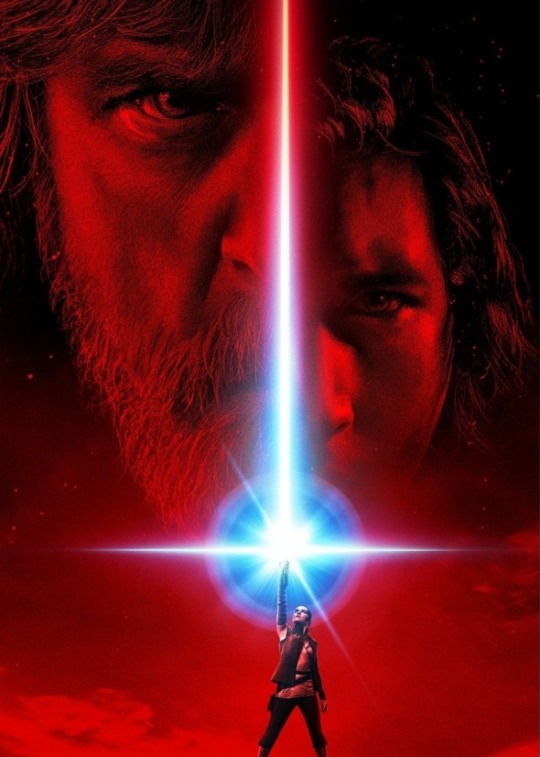#in my head all the sith scriptures are in paper form
Explore tagged Tumblr posts
Text
star wars characters, no matter how old, being awkward at handling paper books because they're too used to digital media>>>
#just a little headcanon#also the implication that print media in-universe is mostly used for salacious/dangerous texts#that shouldn't be replicated or distributed too easily#in my head all the sith scriptures are in paper form#star wars#txt
358 notes
·
View notes
Text
Jedi and Lutherans: what Rey and Martin Luther might have in common
When I was a kid, I was a massive Star Wars nerd. How massive? I read the books. THE BOOKS! That’s when you know you’re lost!
One day I stopped, looked at my bloated belly, and decided that between the film, games, dolls, books, TV shows, legos, bed sheets, death star shaped ice cube trays, and Shakespeare reinterpreted to involve Star Wars characters, I’d consumed enough Star Wars to last several life times, and even without actually going all that ham personally on all the merchandise and expanded lore, merely living in a world saturated in such an omni-present franchise had rendered the Star Wars universe a fairly mundane setting for me. And growing up didn’t help, because as your tastes refine it becomes harder and more thankless to spot the one or two good things about the Prequel trilogy, which was ‘my generation’s’ Star Wars. And I didn’t have any industrial strength nostalgia goggles lying around.
So when Lucas Films was snapped up by the equally omni-present Disney Corporation and a new line of Star Wars films was announced, my reaction was “Neat... I’m going back to bed.” I still haven’t seen the Force Awakens nor Rogue One (Is Rogue One a code name? Or is it like “The one who is rogue”?) but just recently a mistaken click on some click-bait rumour article about the upcoming instalment The Last Jedi saw me stumble upon a fan theory that turned out to be the most I’ve been intrigued by Star Wars in over a decade. It started in the article with ‘Grey Jedi’ and ended in my head with the Vatican and the Protestant Reformation.
Strap in.

The rumour is that Rey, the main protagonist of this new line of films, is the first canonically recognised Grey Jedi. “What on Earth is a Grey Jedi?” I wondered. It’s a fan made term, or maybe one initiated in the obscure expanded lore which has apparently now been declared non-canon by Disney (it’s all very confusing) and its meaning is a little vague, but is usually given one of two definitions. The first is just a Jedi who’s a bit of a bad boy, and who has some trouble following the rules of being a Jedi. So I guess by that logic any Jedi who becomes an evil Sith Lord by definition has to have transitioned from Jedi, to Grey Jedi, to Sith Lord (the Black Jedi by the naming convention suggested by “Grey Jedi”). Fans have suggested that Qui Gon Jin was a Grey Jedi simply because he was a bit of an arsehole who never agreed with anything the Jedi Council said. That makes sense I guess. I recall Count Dookoo suggesting that Qui Gon had been fertile for conversion to the Dark Side.
But the second definition - the one I find interesting – is simply one who is in balance with the force (much like a Jedi) but who is not a Jedi. Does not subscribe to the force related teachings of the Jedi Order. Following the Order’s teachings has long been depicted in the series as synonymous with being ‘in balance’ with the Force, the only alternative being to make the force one’s figurative bitch, which seemingly defines one as belonging to the evil Sith. Basically the anti-Jedi. But the very existence of Grey Jedi calls that dichotomy into question, which means nothing if Grey Jedi are just a figment of the fandom’s imagination, but if the current makers of Star Wars are indeed planning on taking this idea and running with it, I could see that being very interesting and somewhat daring.
Here’s the thing. The now long extinguished Jedi Council were a bunch of idiots. That’s not how they were deliberately depicted, it’s just a result of George Lucas’ horrendously amateurish plot and character writing throughout the prequel trilogy that many Star Wars fans have this unofficial idea that the pre-Luke Skywalker Jedi weren’t as wise as the story would have us believe.

What? The guy who’s been acting like a Sith Lord all this time and has benefited from every bad thing that’s gone down to which he’s always had a super obvious connection turned out to be the Sith Lord? Oooooh nooooo, who could have figured that out except anyone?
Suppose that notion was also picked up by the film makers and officially recognised. If they don’t have the onions to just add the prequels to the increasingly crowded bin of Non-Canon, then they could at least acknowledge that the Jedi’s old fashioned mindset and rigid insistence that the Force moves in mysterious ways was partially responsible for them getting outsmarted and all but wiped out by the Sith.
But if Grey Jedi are a real thing now and one can officially be not only force-sensitive, but also successfully wield the force as a partner (like a Jedi) and not as a slave (like the Sith) without giving a toss about shunning emotion, or never hooking up with anyone, or wearing your hair in a stupid braid until the council tells you you can stop, or any other silly little rule from the How To Be Awesome Jedi handbook, then how much or how little authority do the Jedi as an institution actually have on the subject of the Force?
The reason this intrigues me is because I have an affection for internet history videos (how did my high school manage to make history seem so boring?!) and this potential ‘Force Schism’ reminds me of a medieval figure whose story I recently got pretty big into. Martin Luther.
His is the story of the Protestant Reformation, which was a huge goddamn deal for Christians and consequently anyone who happens to share a planet with them. I am an agnostic atheist; I don’t believe in the divine, but I don’t for a second claim to know that the divine does or does not exist. I typically don’t get on well with organised religion, but even I have to admit that I like a lot about the way this Martin Luther guy thought.

Who was he? He was a German law student turned monk born in 1483 and who by 1517 had grown increasingly frustrated with the Catholic Church’s corruption and abuse of authority over people’s immortal souls, authority which he believed it didn’t actually have. This came to a head one day when a friar arrived in town selling ‘indulgences’ which were basically little slips of paper absolving you of some of your sins.
Yes, you could buy that. As far as the Catholic church was concerned, redemption in the eyes of God was quite literally for sale. If you think that sounds a little messed up, Martin Luther agreed. He wrote Ninety Five Theses decrying the custom and famously nailed them to the church door before the eyes of the public.
From here his ideas became increasingly radical (and increasingly awesome) generally attempting to expose the Church’s rituals like the priesthood as being mere formality, entirely of human design, possessing no actual spiritual power. High ranking church officials were seen as holy, and having authority to dictate the will of God to the masses, and priests were often the only ones in each town or village who could read, or at least who could read Latin, which conveniently was the only language in which scripture was available. “God has a thing about condoms. You can’t read the bible, but trust me, that’s totally what it says!” But Luther denounced even the pope himself as imperfect and fallible like any other human being. At the core of Luther’s system of belief was “Sola fide” - “Only faith”. The belief that everything one needed to attain salvation in the eyes of God was their own faith, and not the outside help of anyone specially authorised to admit God’s approval.

In addition to spreading the idea that people didn’t need priests and as individuals already had everything they needed to practise their faith, Luther translated the bible to common, everyday German and used the new technology of the printing press to distribute it to the people on a massive scale. Now everyone could read the bible for themselves, breaking up the church’s tidy little monopoly on salvation. And when a monopoly gets broken up, the previous holder of that monopoly suddenly finds them self facing actual pressure to perform well in the face of new competition. The Vatican’s officially sanctioned interpretation of scripture was no longer automatically the correct one by simple virtual of being the only available interpretation.
This was a massive, massive deal because the Catholic church had been - without hyperbole – the most powerful institution in Europe, and that power was based on having built a necessity for themselves and their man-made traditions into what was the dominant form of the dominant religion throughout the entire continent. And Luther’s insistence that soul authority (har har) over what God says and wants was not held by anyone here on Earth led to massive fracturing in the church. Suddenly everybody had their own interpretation of scripture and everybody was going off to start their own church.
This wasn’t just a spiritual schism, it was a continental political revolution.

So what if the Jedi’s authority over matters of the Force is also assumed and has been gradually born of hubris and vanity? You might think “What?! But the Jedi are the good guys! The way of the Jedi has been at the centre of every mainline Star Wars story!”
Well… Not only have the Jedi failed spectacularly in their role as galactic, Force fueled peacekeepers at least twice, but I’d argue their methods have led to a repetitive loop of stale events and plot lines in the Star Wars films. I’ve always felt this weird inconsistency in the spirituality of Star Wars. A clashing between Western philosophical themes of dichotomy - of good vs evil, and Eastern philosophical themes of balance in all aspects of life and nature. The overarching goal of the Jedi throughout Star Wars history has been to “bring balance to the force”. Balance implies harmonious existence of two opposing forces, but the Jedi usual speak of this balance in terms of defeating and eliminating once and for all their long time counterparts, the Sith. And twice now within the films they’ve thought to have finally achieved this only for the Sith to pull the rug out from under them and reveal just how distant this dream of balance still is.
Well what if that’s because the Jedi have been going about it all wrong? What if this Western style dichotomy in pursuit of Eastern style balance never works because the dichotomy itself is a perversion of the Force? Is being an emotionless, celibate hippy like being a Jedi requires really what brings balance to the force? Or is this insistence on what are actually arbitrary, man-made ideals what causes force users to become frustrated and seek emotional freedom as Sith, seeking conflict with the Jedi allegedly being the only force sensitive alternative to being a Jedi?
Maybe the Jedi’s authority over matters of the force has become muddied and misused. Maybe all that pomp and ritual can be thrown off for what it is - meaningless. ‘Sola vis’ if you will. “Only the Force”.
The hopelessness in the way the Jedi have always operated, and the accompanying contradiction has I think long been unintentional and the result of sloppy writing. But now is a new era of Star Wars, so why not get meta with its narrative? The writers should pull the old “Nah, we meant to do that!”. Take the nonsensicalness of the prequel Star Wars era and embrace it – recognise it as nonsensical and use it to explain why the Star Wars story keeps looping (then nobody can complain anymore that Return of the Jedi seems pointless now that we know the peace didn’t last five minutes). Just as Star Wars is recovering from a run of bad writing, let’s have the characters’ understanding of the force recover from thousands of years of flawed, fallible people assuming undue spiritual authority (Thousands? Hundreds? I don’t know, every era in Star Wars history feels pretty interchangeable).
The moral compass of the Star Wars world has traditionally been a pretty simplistic one (ain’t nothin’ wrong with simplicity): Jedi good. Jedi are awesome. Jedi know what’s up. Do you want to be absolutely sure that you’re one of the good guys and that you’re talking sense? Then make sure you’re a Jedi. So it would be quite a drastic change to the franchise to suggest that all this time the omni-present Jedi have been getting it at least a little bit wrong. But it’s also exciting to think that maybe being a Jedi is just one way of using the Force harmoniously, and that this balance will finally be possible once the Jedi finally stop and ask themselves “Huh... what is the point of all these super specific rules?”
I hope it turns out Rey does indeed reject the Jedi teachings without losing her harmony with the force and becoming a Sith. And what if Kylo Ren comes to the same realisation from the other side of the court? He seems pretty insistent that the Jedi suck, but he also seems unsure of himself as a Sith. Sounds like he should give this Grey Jedi thing a try too. Unless it turns out I’m misreading, completely, and The Last Jedi turns out to be going after something completely different and this was all a waste of time...
2020 edit: Fuck sake, Abrams. Yes, I do in fact remember my childhood. We established that with Force Awakens. But that can’t hold up an entire trilogy if you’ve nothing else on your mind!
4 notes
·
View notes